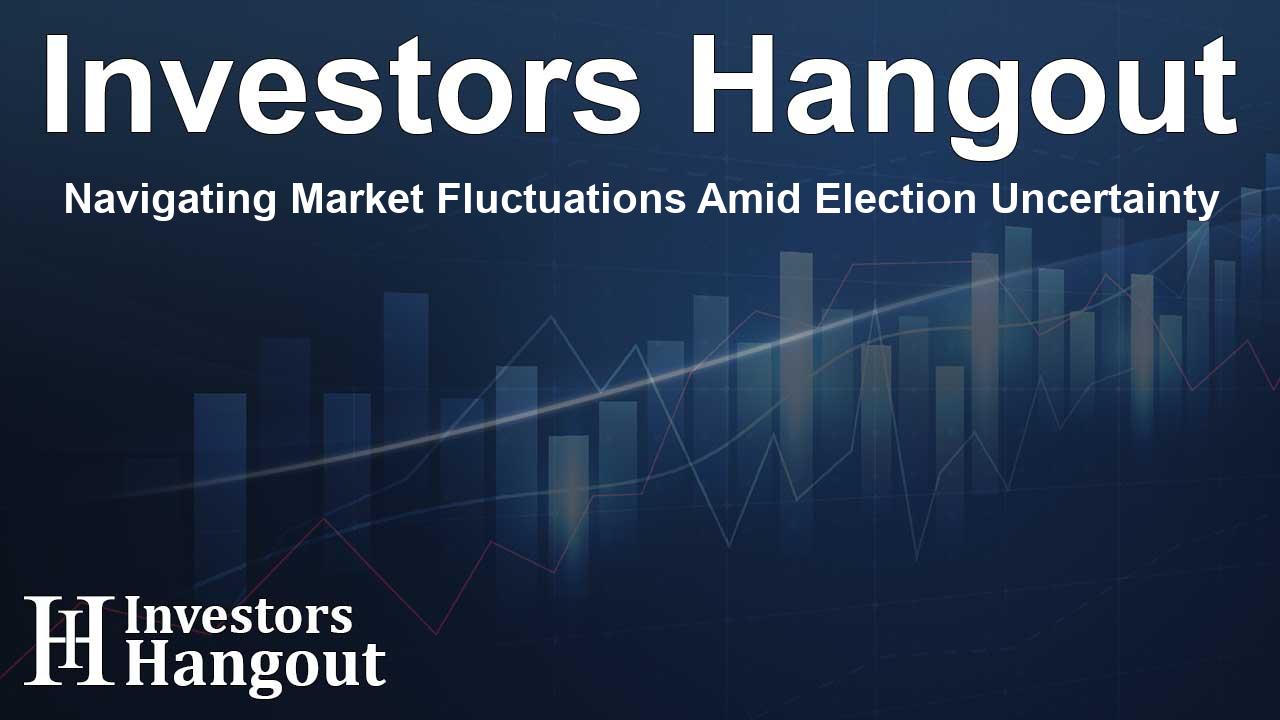Navigating Market Fluctuations Amid Election Uncertainty

Market Volatility and Economic Uncertainty
In today’s climate, investors are increasingly faced with economic uncertainty, shifting Federal Reserve policies, and the looming presidential election. These elements combine to create a heightened demand for effective portfolio hedging strategies.
The Cboe Volatility Index Surges
The Cboe Volatility Index (VIX), often referred to as the market's fear gauge, is currently hovering around 20. This marks a notable increase from the 2024 average of 14.8. Historically, spikes in the VIX are commonplace during election years, as investors brace themselves for potential market implications stemming from various candidates' policy proposals.
Influence of Election Year on Markets
This year, the political atmosphere is complicated by additional volatility, with growing concerns about a slowing U.S. economy and uncertainty regarding the Federal Reserve's direction in interest rates. The S&P 500 recently experienced its steepest weekly decline since March 2023, coinciding with a pair of disappointing jobs reports.
Expert Insights on Market Sentiment
Despite the S&P 500 maintaining a nearly 15% increase this year, market sentiment remains shaky. Matt Thompson, co-portfolio manager at Little Harbor Advisors, noted, “Investors are aware of elevated risks, but the exact nature of these risks remains unclear.”
Market Preparations for Volatility
The anticipation of volatility is palpable, particularly with the approaching elections. Less than typical is the expectation of an “election bump” reflected in the October VIX futures. The spread between contracts representing the highest and lowest volatilities is only slightly over 1 point, contrasting past election cycles.
Current Market Concerns
Investor focus on VIX has intensified, particularly following a record single-day spike on August 5 related to a significant market sell-off. Though volatility normalized quickly, the index's upward trend resumed as the market exhibited further unpredictability.
The Role of Global Events
Analysts at Societe Generale recently advised investors to maintain hedging strategies for the coming three to six months due to potential volatility arising from adverse economic developments and geopolitical tensions, particularly regarding U.S. elections and ongoing conflicts in the Middle East and Ukraine.
Investor Sentiment Towards Candidates
The impending presidential election has stirred significant interest among investors. A recent survey indicated that 67% of investors believe that former President Donald Trump’s return would benefit stock market performance, bolstered by historical trends showing gains during his presidency.
Concerns About Kamala Harris’ Policies
In a stark prediction, Trump has warned that a victory by Kamala Harris could lead to a market crash similar to the catastrophic events of 1929. Such statements contribute to the rising anxieties surrounding the election's potential impact on financial markets.
Silicon Valley's Economic Fears
Concerns also extend to Silicon Valley regarding a proposed tax, which could be part of either Kamala Harris’s or Joe Biden's economic strategy. The tax on unrealized capital gains has triggered unease among tech investors, who closely monitor fiscal policy shifts.
Investments by Congress
Keep an eye on congressional investments, as significant financial maneuvers are being made ahead of the upcoming election, with many expecting changes in legislation that could alter market dynamics.
Frequently Asked Questions
What factors are contributing to current market volatility?
Current market volatility is driven by economic uncertainty, changes in Federal Reserve policy, and the upcoming presidential election.
Why is the VIX significant to investors?
The VIX indicates market expectations for volatility, helping investors assess potential risks associated with stock swings.
How do elections influence stock markets?
Elections can create unpredictability, leading to shifts in investor sentiment and market behavior based on the candidates' proposed policies.
What should investors do in this climate?
Investors are advised to maintain hedging strategies and be cautious, given the potential for unexpected economic developments.
What are Silicon Valley’s concerns about taxes?
The proposed taxes on unrealized capital gains are causing anxiety among tech investors, prompting fears of restrictive fiscal policies.
About Investors Hangout
Investors Hangout is a leading online stock forum for financial discussion and learning, offering a wide range of free tools and resources. It draws in traders of all levels, who exchange market knowledge, investigate trading tactics, and keep an eye on industry developments in real time. Featuring financial articles, stock message boards, quotes, charts, company profiles, and live news updates. Through cooperative learning and a wealth of informational resources, it helps users from novices creating their first portfolios to experts honing their techniques. Join Investors Hangout today: https://investorshangout.com/
Disclaimer: The content of this article is solely for general informational purposes only; it does not represent legal, financial, or investment advice. Investors Hangout does not offer financial advice; the author is not a licensed financial advisor. Consult a qualified advisor before making any financial or investment decisions based on this article. The author's interpretation of publicly available data shapes the opinions presented here; as a result, they should not be taken as advice to purchase, sell, or hold any securities mentioned or any other investments. The author does not guarantee the accuracy, completeness, or timeliness of any material, providing it "as is." Information and market conditions may change; past performance is not indicative of future outcomes. If any of the material offered here is inaccurate, please contact us for corrections.